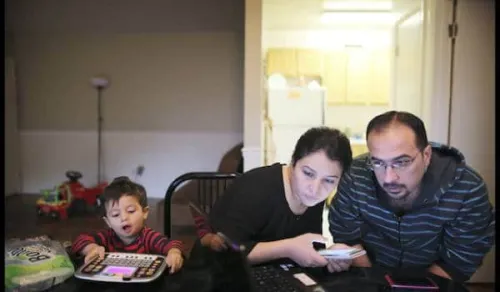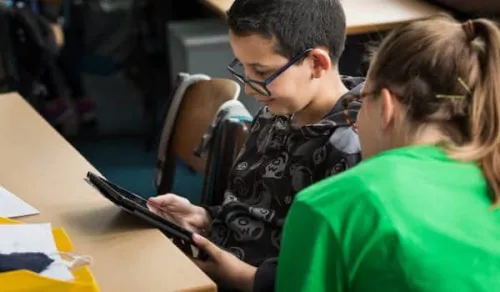Digital Awareness for Newcomers in the United States

Digital Technology is Everywhere
In the United States, digital technology is used for a wide variety of activities. It may help you find and apply for a job, pay bills and manage your bank account, keep track of assignments and events at your child’s school, and access information and services provided by the government or other agencies. Some Americans also use digital technology for shopping, staying healthy, learning new things, and entertainment. All of these activities can be done online using a computer, a phone, or a tablet.


Privacy
In some ways, the internet is like a public square or marketplace. If you go there, people can see you and watch what you are doing. That may not be a bad thing; in the marketplace, if you are looking for sandals, a seller might notice and offer you a good pair at a discount. People, or companies, on the internet can do something similar; they can collect information about your online activities and sell that information to advertisers and other companies who want to sell you something. New features on digital devices are being offered that allow users more control over their internet privacy.
Security
Digital technology offers many conveniences and unprecedented access to valuable information. However, it also presents new security risks that you will want to understand in order to safeguard your personal information and your privacy.
Many phones or other mobile devices can be locked with a security code or your fingerprint. Locking your device prevents strangers from accessing information stored on the device such as photos, email or message content, and account information.
Online accounts usually require user names (often email addresses) and passwords which offer additional security. This helps prevent hackers (online thieves) from gaining access to your accounts and information. Internet security experts advise the public not to share their passwords with people they do not know or trust. They also recommend that you do not use the same password for every account. Experts also suggest that you avoid sharing your phone with strangers or people you do not know and trust.
Sometimes, you may want to use a public or shared computer. For example, many libraries in the United States provide computers and free internet access to the public. If you use a public computer, however, make sure you understand how to properly close your session so that none of your personal information is stored on the computer. There are usually instructions provided or a librarian who can help you.
Children and the Internet
The internet makes all kinds of educational and social opportunities available to children. They will need to learn how to use digital technology to advance at school and succeed in life. Children also need to be taught how to exercise good judgment about sharing photos or information about themselves, how to make good use of their time on the internet, and how to protect their privacy and information. Many digital devices and some Wi-Fi plans have parent control settings which parents should understand and utilize to monitor their children’s internet activity.

Phone and Data Costs
Mobile phones make staying in touch with friends and family relatively easy even when they are far away. In the United States, people purchase phone plans that offer talk, text, and data packages for a set monthly fee. The cost of these plans varies depending on how many phones you need, how much you will use them, and how they will be used. Some activities, like sending emails, use very little data, but other activities like watching videos, listening to music, or sending photos can use a lot of data which can increase phone expenses dramatically. If you have multiple phone and computer users in your household, you will want to monitor your household data usage carefully and budget accordingly. You may also decide to purchase unlimited data or a Wi-Fi connection.